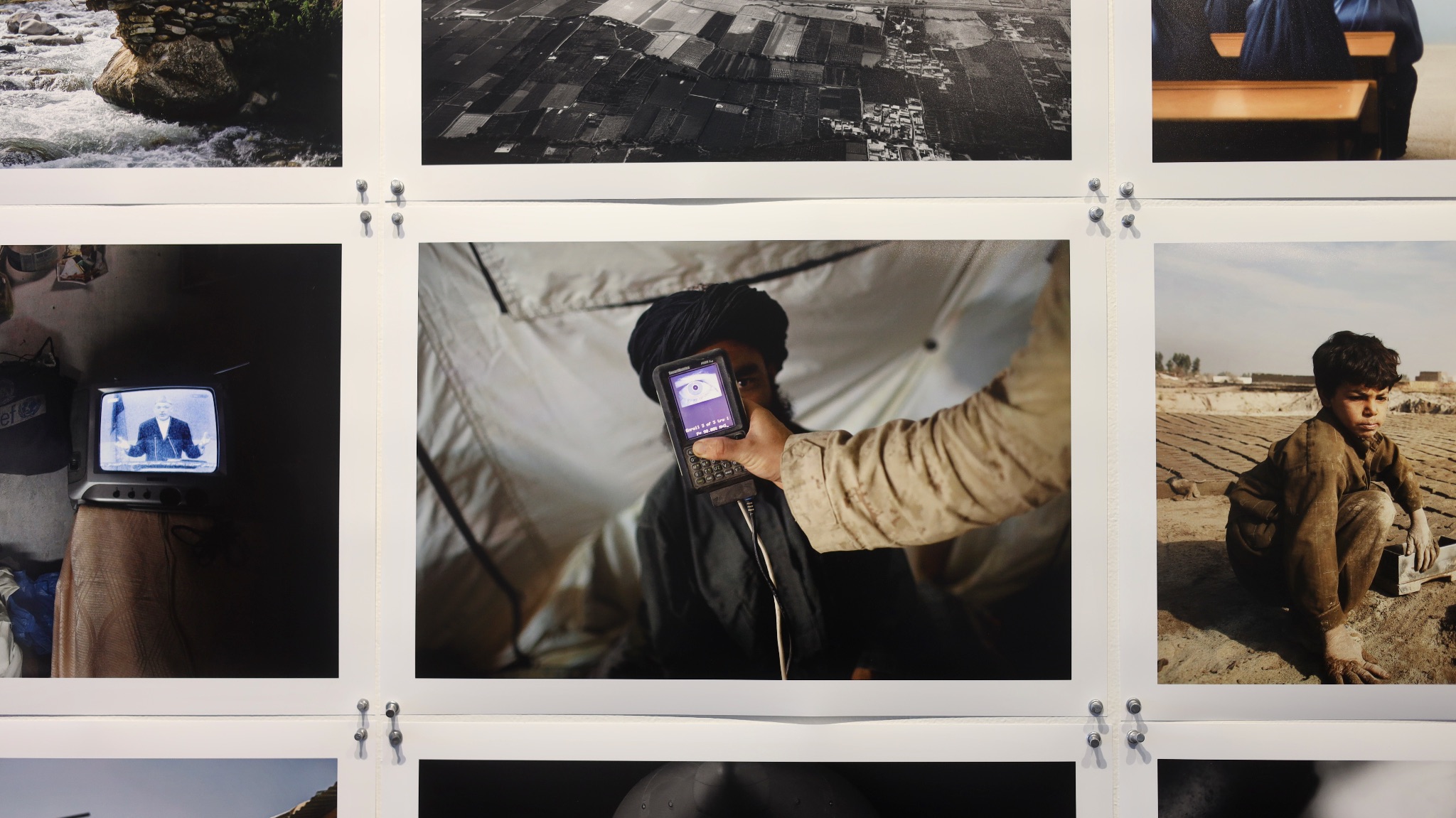The US withdrawal from Afghanistan and subsequent Taliban takeover has many reflecting on America’s 20-year war. However, a new photo exhibit at the Bronx Documentary Center suggests the fallout is far from over.
Urgency! Afghanistan is an “exhibition in progress” showing the work of more than a half dozen international photojournalists who covered the war. The collection is curated by exhibition manager Cynthia Rivera and Michael Kamber, Bronx Documentary Center founder and executive director.
Photographs of Afghanistan are displayed alongside a detailed timeline and cover all walls but one. The back wall of the gallery is reserved for something different. This is because the timeline is not marked complete with the date of US withdrawal. A bench, projector, and speaker sit at the back of the space, displaying in real-time new images from photographers currently in Afghanistan.
Importantly, the Bronx Documentary Center is not just an exhibition space — it’s fundamentally a place designed to educate. However, the aim, as described by Kamber, is not to tell people what to think.
While some visitors might inquire what foreign policy solutions the exhibit offers, the Bronx Documentary Center doesn’t take political positions: “It’s about getting a conversation going and providing evidence — and hopefully democracy will work its magic and people will come together and find the answers,” said Kamber.
Kamber, who has worked as a journalist for over 25 years, established the Bronx Documentary Center after covering war and conflict in countries such as Iraq, Liberia, Sudan, Somalia, The Congo, and Afghanistan. The Center is dedicated to positive social change through photography and film, while being fully rooted in the concerns and needs of Bronx residents.
“If [the photographs are] put in the right context and are curated in a responsible way, I think they can give a ton of clarity about what happened, I don’t know if they can give clarity about why it happened,” said Kamber. “Those are all just moments in time and place, all those photos are an instance at a specific given location where something happened.”
Kamber believes an informed public is the foundation to a fair, just, and democratic society. “And one of the wonderful ways you get information out to people is through photography. There’s almost no better way, I mean everybody just responds to it.”
The Center teaches documentary photography to students of all ages in their photo league programming. They also host film fellowships for documentary filmmakers and program workshops year-round.
The Bronx Documentary Center exhibit is scheduled to close on Nov. 14, but the curators may extend the lifespan of Urgency! Afghanistan by putting together a show that can travel around high schools across the US.
“It’s good to have it here but you also need to get it into small towns around America,” said Kamber. “It’s your tax dollars and your neighbors’ sons who went over there and fought this war, and you have to think about that and not forget that it happened.”

